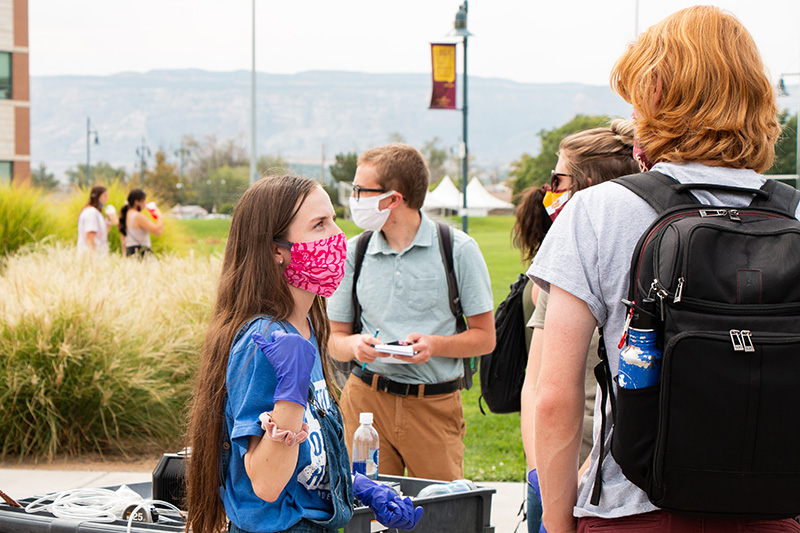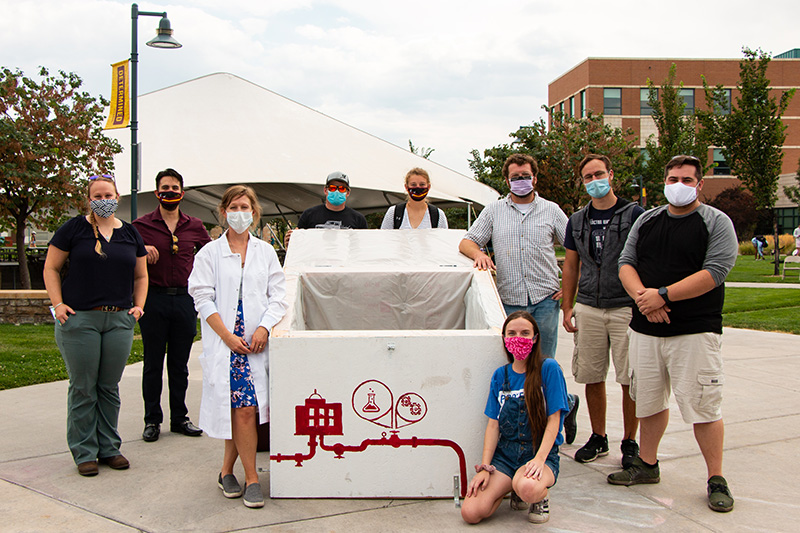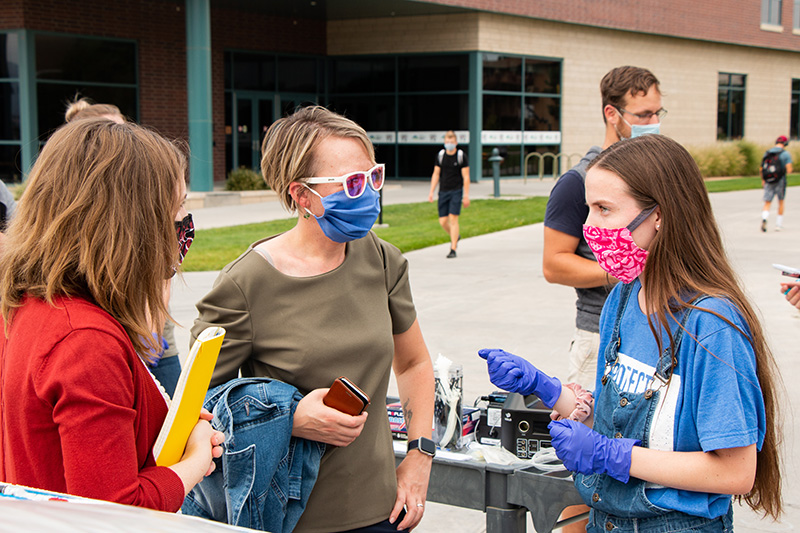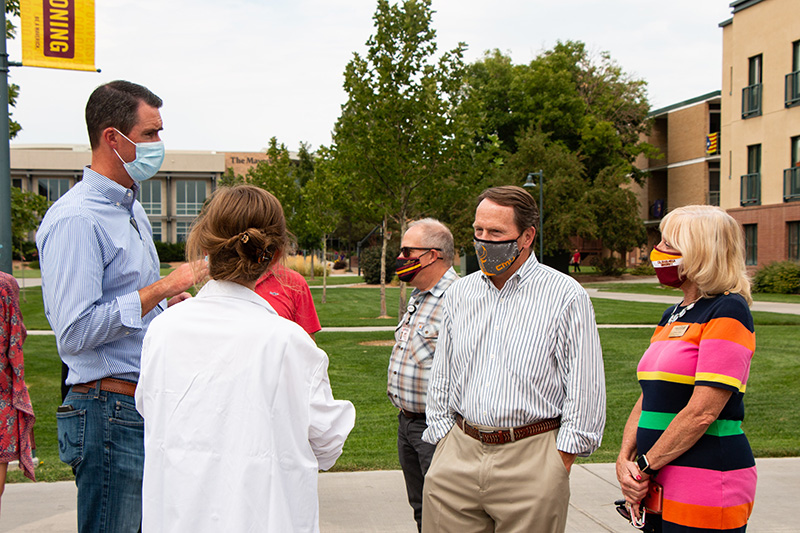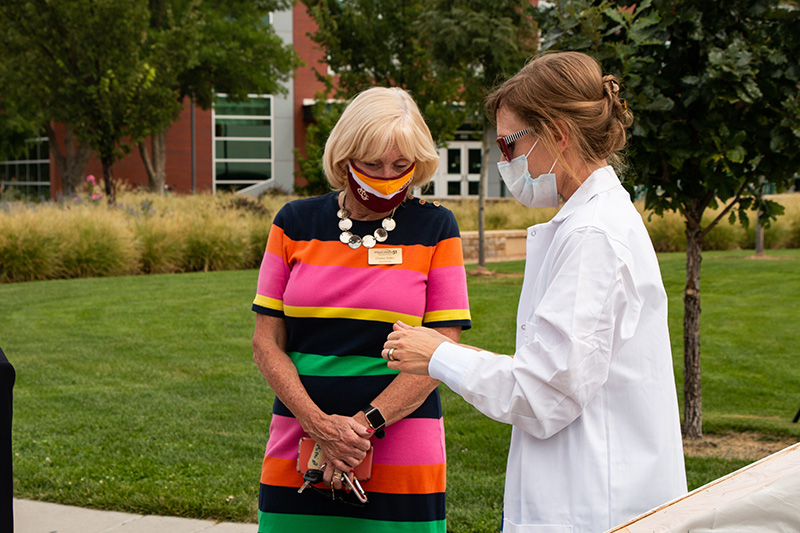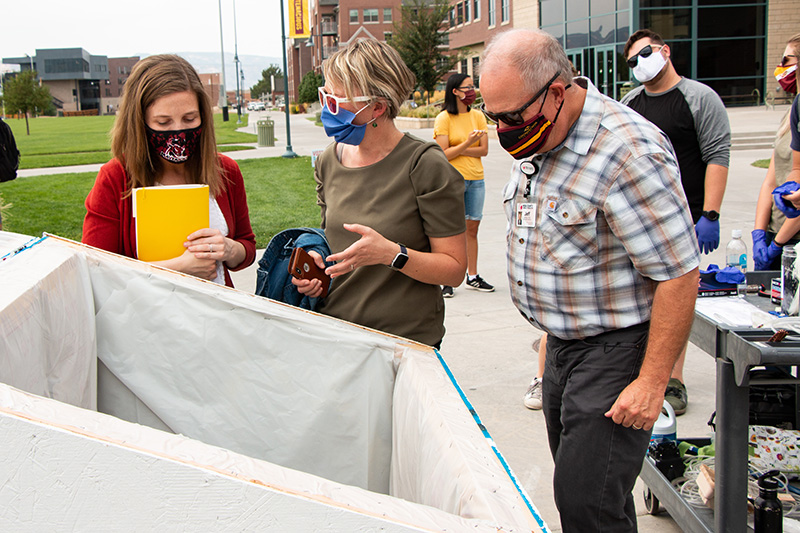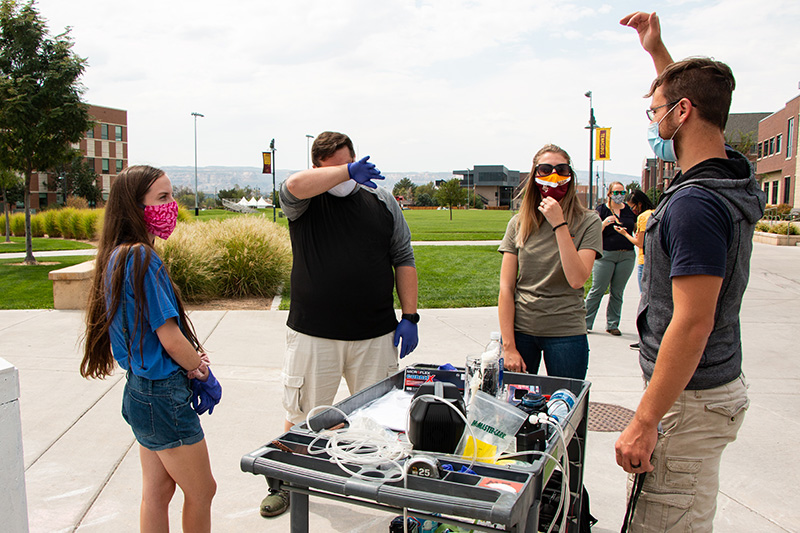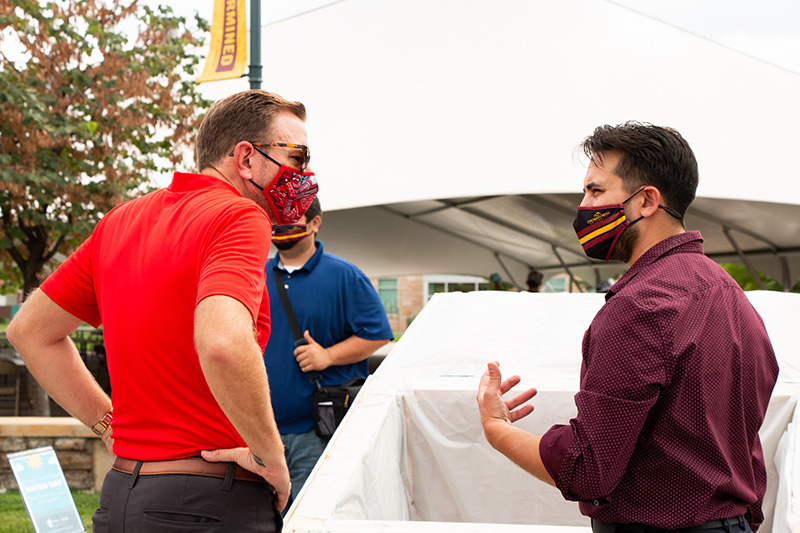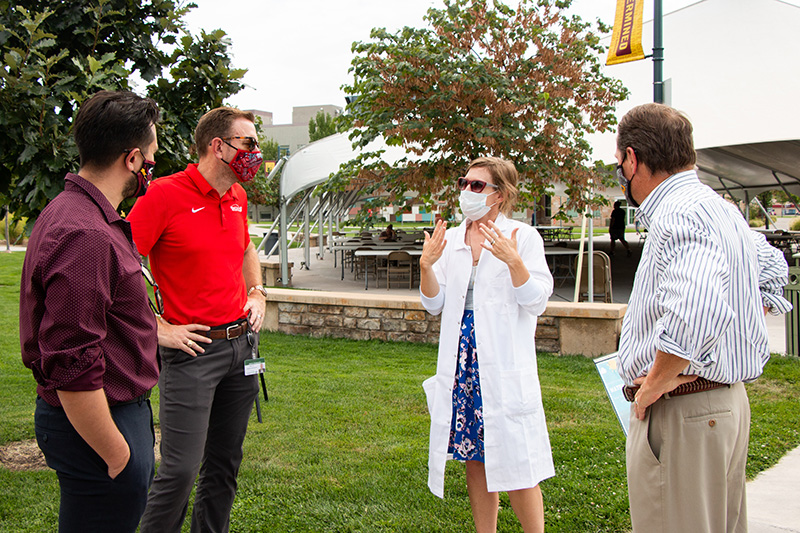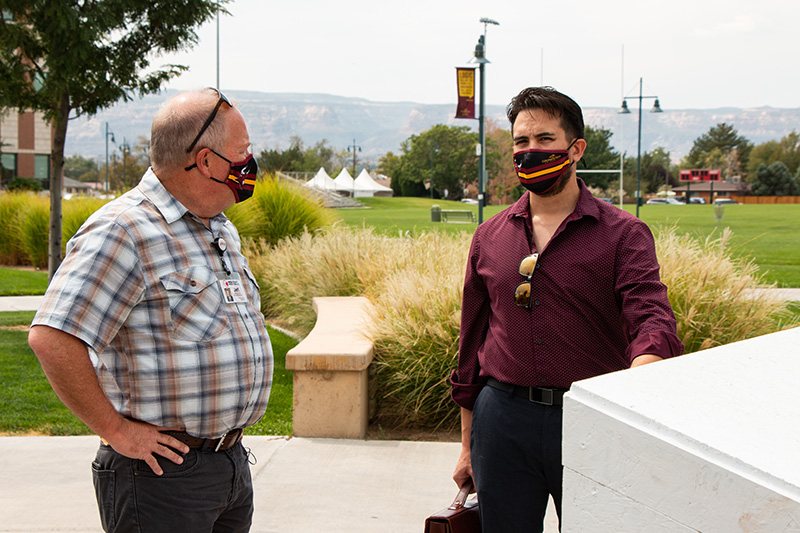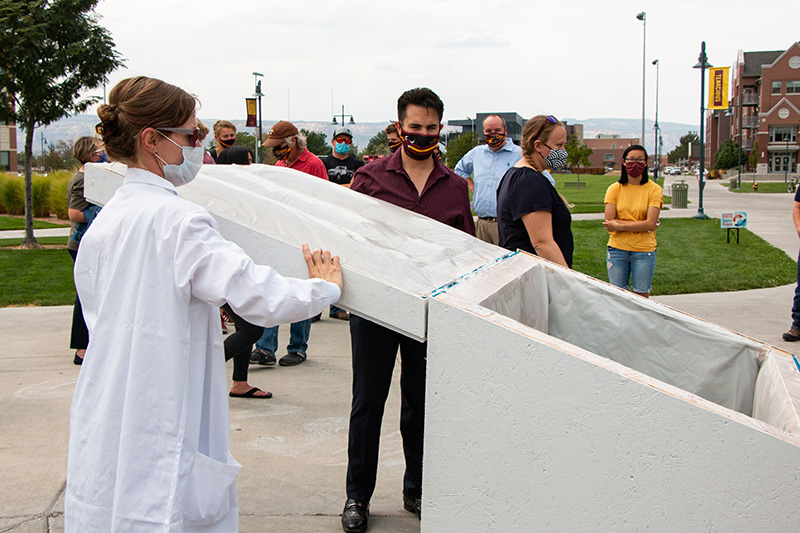Student chapter of Engineers Without Borders fights COVID-19
CMU assistant professor of electrical and computer engineering, Michelle Mellenthin, PhD is advisory to the CMU student chapter of Engineers Without Borders. Mellenthin and other faculty joined students and community members to demonstrate the university’s latest virus prevention efforts.
“The Safe Together, Strong Together plan is a document that is evolving from a return-to-campus plan to a stay-on-campus plan," said CMU President Tim Foster. “The planning initiative’s framework was designed for flexibility and intentionally allows for real-time innovation.”
CMU engineering students and faculty are adding new efforts for testing to establish additional layers of protection as CMU approaches a month since students arrived on campus for in-person learning.
As the university successfully completed around 10,000 baseline tests before students arrived at CMU, engineering students learned that baseline testing is essential, but not the only tool for early virus detection. As a result, they designed a wastewater testing pilot project to complement other testing efforts on campus. The wastewater unit will explore for SARS-CoV-2 in the waste flow from campus buildings and residence halls.
On Friday, August 28, 2020, CMU faculty, engineering students, President Foster and Mesa County School District 51 Superintendent Diana Sirko saw the demonstration as student representatives from Engineers Without Borders showed onlookers how the testing equipment works. In addition to Sirko, Mesa County Public Health Executive Director Jeff Kuhr was on hand to assess the project and consider potential beneficial uses for the community outside CMU.
“The purpose of this wastewater testing demonstration is to show the community we are working to develop tools that may also be useful for the larger community,” said CMU Vice President John Marshall. “Having Dr. Kuhr and other area health experts on campus for this demonstration is important because their advice ensures projects like this produce useful data for our efforts and beyond.”
The community demonstration began with remarks from Kari Sholtes, PhD, a faculty member in the CMU/CU Engineering Partnership Program. Sholtes was among the driving forces in bringing the project to completion and believes that faculty and students have a role to play in reducing spread of the virus beyond simply following safety protocols.
Early detection of COVID-19 is an increasingly important part of campus response plans as outbreaks around the nation are leaving universities and colleges facing the probability of closing once again. The wastewater testing system rests on the knowledge that infected individuals spread the virus at the highest rates at the beginning of their illness even though some assume the spread only occurs when symptoms are experienced.
In order to find pre-symptom infections, CMU faculty and students will begin testing wastewater to detect the virus before individuals begin to spread illness. When scientists test the wastewater for SARS-CoV-2, they can find the microbe even before people feel sick.
“In organizations where people from diverse areas of expertise take ownership of success within our plan, that joint effort begets more success,” said Safe Together, Strong Together Co-Chair Amy Bronson, EdD. “From wastewater testing to additional academic adaptions being made in real time, CMU’s implementation of our Safe Together, Strong Together plan is being accomplished from the benefit of our students and the entire community.”
Community members interested in the program are encouraged to email [email protected].
